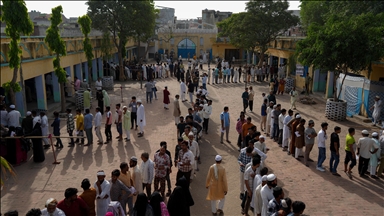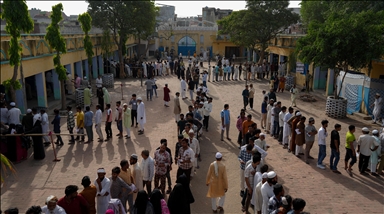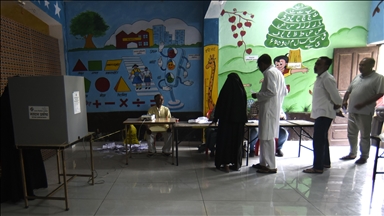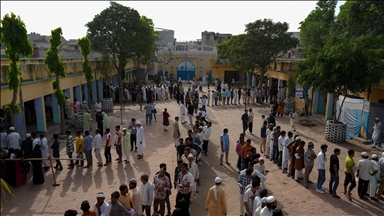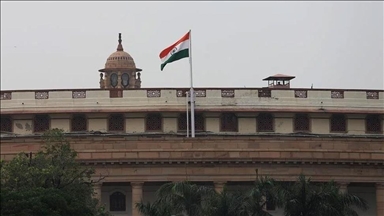India: COVID-19 establishes nursing a healthcare backbone
On International Nursing Day, nurses show they continue to wage a war against COVID-19 pandemic at great sacrifice
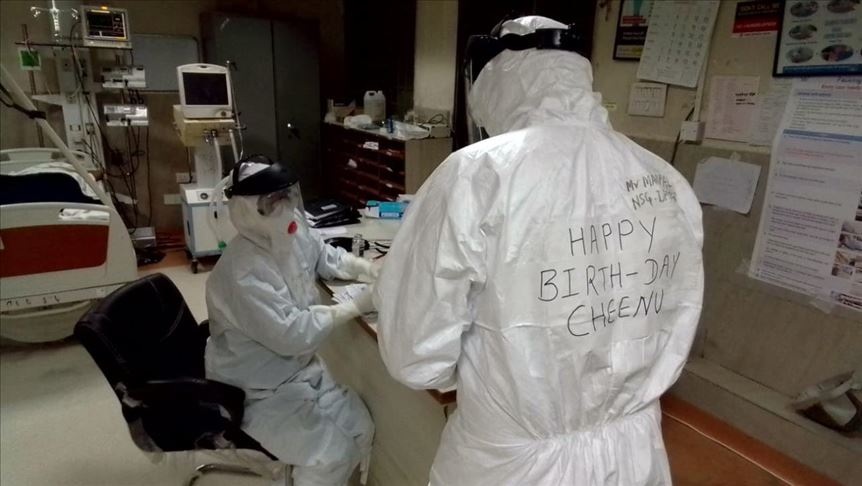
New Delhi, India
Shefali Malik, 52, a senior nurse at Ram Manohar Lohia Hospital in the Indian capital New Delhi has not seen her family since the outbreak of coronavirus in the country.
The International Nurses Day marked on Tuesday -- which also marks Florence Nightingale’s birthday -- has brought the focus on the difficult job accomplished by the nurses while combating the pandemic.
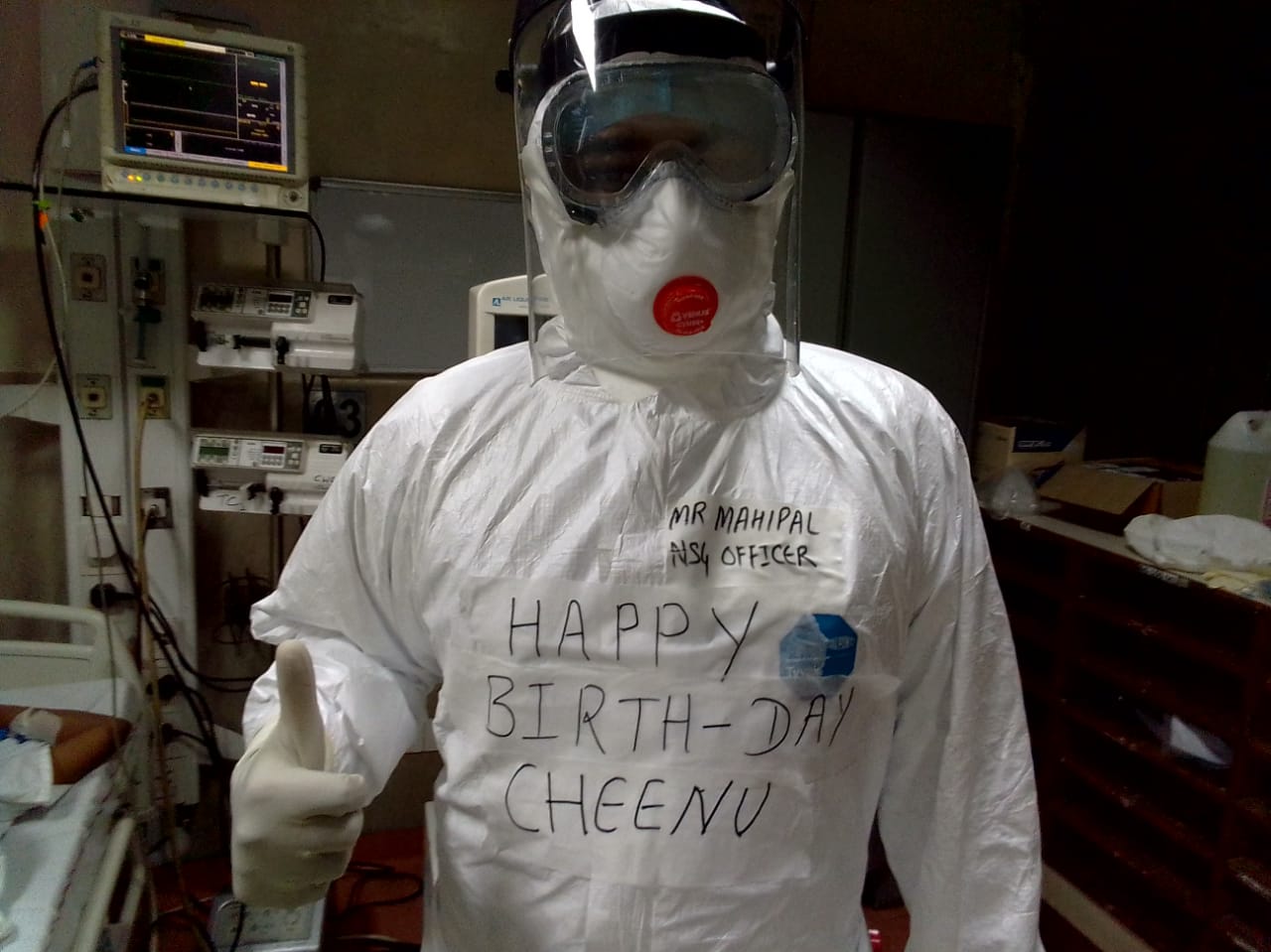
While heading the COVID-19 ward for over the past three months Malik also attended the first patient who reported infection in the Indian capital. Since then she has maintained a physical distance from her 26-year-old son and 18-year-old daughter.
While the lockdown enforced by the virus has allowed people to spend time with their families and keep a distance from potential virus carriers, the reverse is the case for health workers especially nurses.
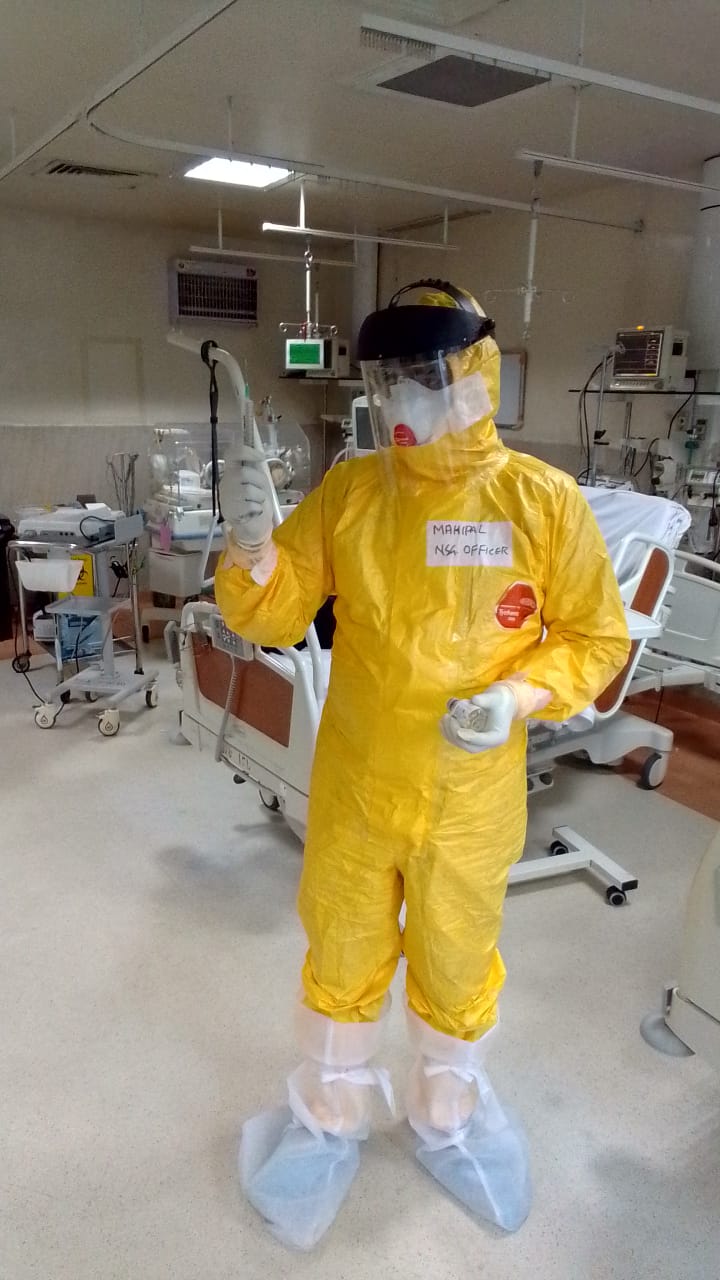
The South Asian nation with around 1.3 billion population reported 70,827 confirmed cases of coronavirus including 2,294 deaths so far.
For over the past many months, nurses exposed to COVID-19 infected patients have kept a distance from their families.
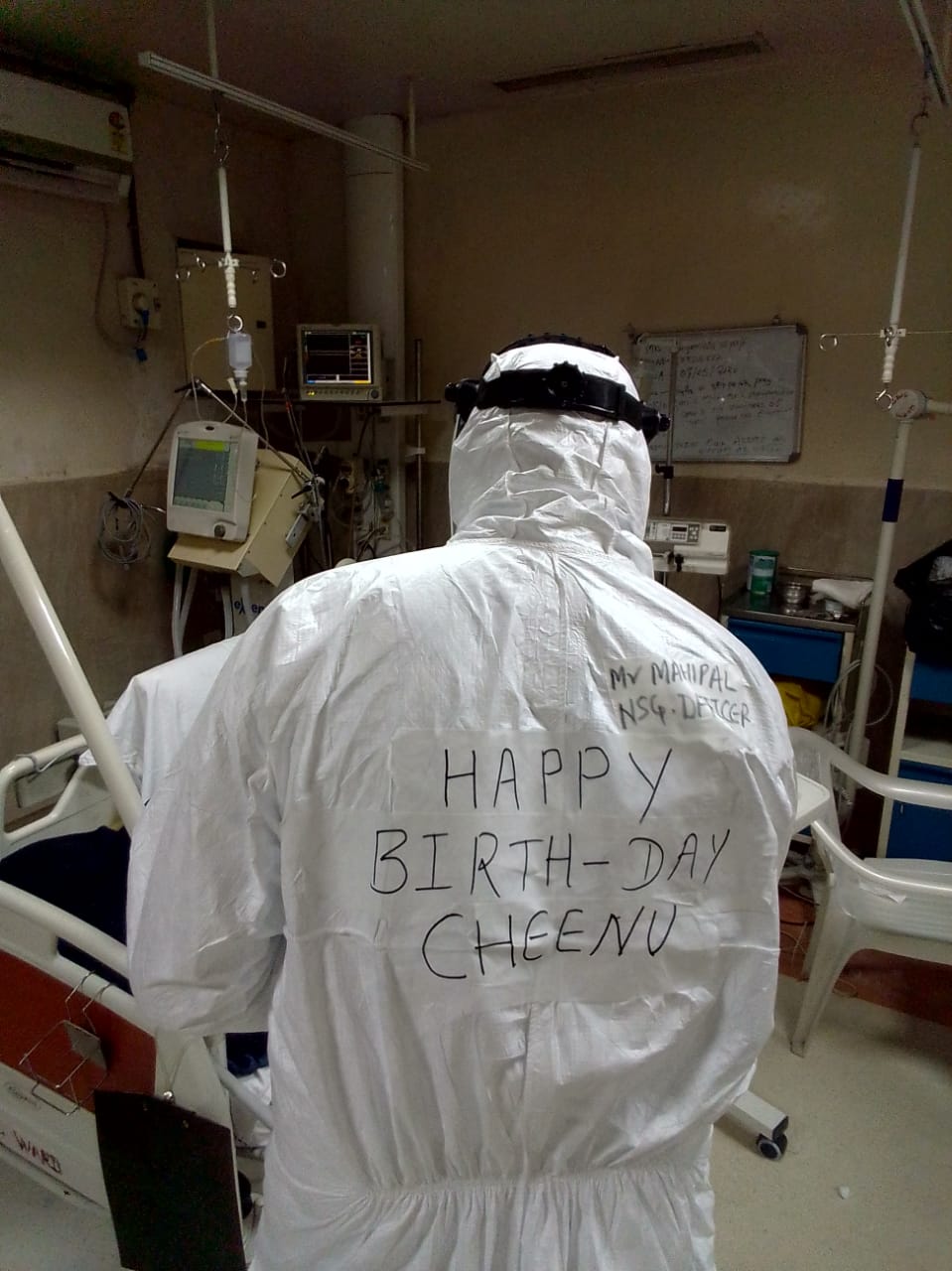
“As a single parent, I am doing the best that I can. The work is physically and mentally demanding, and as we make sure that the patients return to their families safe. We need to keep our loved ones safe too," said Malik.
Her routine is after returning from hospital, she straight goes into her room and keeps a distance from her family.
“If I have to talk to my children, I do that from a distance,” she told Anadolu Agency.
Few miles away at India’s premier health institute, male nurse Mahipal Rana, 36, is celebrating the birthday of his 10-year old son, by pasting a birthday message on his protective equipment gear, commonly referred to as PPE.
“There is no question of visiting my son on this occasion," he said.
After wishing his son briefly on a video call, as he cut his cake, the man in white returned to his duty. Posted as the nursing officer at the Trauma Centre of the All India Institute of Medical Sciences, now dedicated to COVID-19 patients, he is exposed to the infected patients all day long.
Exposed to the virus and away from families
To keep his family safe, Rana has not allowed his wife and son to visit him from his hometown in Nagaur district of the eastern province of Rajasthan for over past three months.
“I am exposed to the virus all day long. While we wear suits and take all the necessary precautions, I do not want my family to get infected. My wife is a government teacher back home, and during summer vacations they used to visit me every year. I asked them not to come this year,” said Rana, who is now living alone in a rented apartment in the national capital Delhi.
The hospital has 4,000 nurses, the highest number in the country, working in four shifts since the outbreak of the pandemic.
With no weekend and working six-hours every day, Rana said the job is very demanding but yet satisfying when they see patients recovering.
“For the entire six-hour duration, I have to wear PPE suit and thus cannot eat, drink, or even use the washroom," Rana told Anadolu Agency.
It is difficult to wear the suit for long durations. “It does not allow air to pass through the body and we cannot even drink water. But what is satisfying is to see patients get recovered and go home,” he added.
So far three of his colleagues have tested positive. The lack of adequate testing coronavirus leads to healthcare professionals, who are the heart and soul of the healthcare delivery system, being exposed to and being infected themselves and endangering the safety of their loved ones at home.
Shortage of nurses
According to the World Health Organization (WHO), India is facing a severe shortage of nurses.
There are just 1.7 nurses per 1,000 people in India, according to Health Ministry data. This is less than by 43% of what WHO recommends, i.e., a minimum of three nurses for 1,000 people.
In March, the government told parliament that India has 3.07 million registered nursing personnel, including nurses, midwives, and nursing assistants. The nurse-patient ratio in India is 1:20, way behind the International standard ratio of 1:4.
Anadolu Agency website contains only a portion of the news stories offered to subscribers in the AA News Broadcasting System (HAS), and in summarized form. Please contact us for subscription options.


